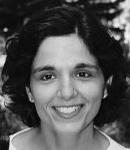Place your votes: BNA Council & Committee elections
22nd July 2024
8th Mar 2021
To celebrate International Women’s Day, the British Neuroscience Association (BNA) asked two of our Council and Committee members why they chose neuroscience and about their hopes for the future - we find them inspiring and hope you do too!

After studying A levels in Biology, Chemistry, Maths, and especially finding a real passion for Biology, which translated beyond the syllabus into success at the British Biology Olympiad (Gold). Here, Emma tells us about why she chose neuroscience and her career hopes going forward . . .
"I always had an interest in the brain and what it’s capable of.
"When I’d read those child-friendly human body encyclopedias, I was acutely aware that there were so many pages about all of the other systems but barely two pages on the brain. That piqued my interest and the lack of information kept me intrigued and even the little information there was kept me hooked.
"To be a bit poetic, whenever I heard anything about the brain and what it’s capable of, it gave me a feeling like being a little kid looking up at the stars, admiring them but hopelessly unable to count them. It’s that sense of awe. So, upon knowing that I could study neuroscience as a degree, it was a no-brainer.
"Now, I’m looking into studying a masters, ideally in cognitive neuroscience. Down the line, I would love to do a PhD. In an ideal world, I hope to do something in public engagement, possibly even TV. I’d love to host a neuroscience based show, Wonders of the Universe-style like Professor Brian Cox.
"Ultimate life goal? To deliver a TED Talk!"

As well as being a BNA Trustee, Zoe Kourtzi is Professor of Cognitive Computational Neuroscience at the Department of Psychology, Cambridge, a Fellow of the Alan Turing Institute and a Royal Society Industry Fellow.
Having completed her BSc in Psychology at the University of Crete, Zoe moved to the United States, where she undertook a PhD in Cognitive Psychology at Rutgers University. This was in the early nineties, when the new developments in human magnetic resonance imaging revolutionised the field of cognitive psychology. Zoe was fascinated by the new filed of cognitive neuroscience and moved to Boston and then Tuebingen, Germany to learn about cutting-edge techniques in brain imaging.
Before moving to Cambridge in 2013, Zoe was Chair in Brain Imaging at Birmingham University, a position which she had held since 2005.
In Zoe’s own words:
“Through my research, I'm seeking to understand the links between brain structure, neural function and behaviour. My work focuses on the role of lifelong learning and experience in enabling humans of all ages to translate sensory experience into adaptive behaviours.
"Working with a team of neuroscientists and computational scientists, I address this challenge through a cross-disciplinary approach that combines behaviour with multimodal brain imaging and state-of-the-art computational methods. Building computational tools to harness the power of large-scale data provides new insights in understanding the workings of the brain in health and disease with translational impact in the early diagnosis and personalised treatment of mental health disorders.
"I'm proud and passionate about the career choices I have made within neuroscience, and it's great to highlight on International Women's Day that there are endless opportunities and pathways existing for women considering or entering the field.
"What's important is that we come together to ensure everyone has the chance to access those opportunities, make bold choices and progress to fulfil their potential without barriers."
At the BNA, we’ve a deep commitment to playing a role that actively changes attitudes and behaviour, working hard to put in place the kind of support that promotes diversity and equality. It’s why we’re proud to support the ‘Women in Science’ database, WISDATABASE, along with Royal Holloway University of London and the British Psychological Society.
WISDATABASE is an initiative to raise the profile of women researchers across Psychology and Neuroscience, helping to tackle the problem of under-representation of women in science. This vital database increases the visibility of women scientists by providing a searchable record of expertise, research interests and achievements. To be used by anyone, from journals and funding organisations to selecting speakers.
For women scientists keen to raise your profile and progress your career, record your details on the database - visit WISDATABASE or email: wisdatabase@rhul.ac.uk.